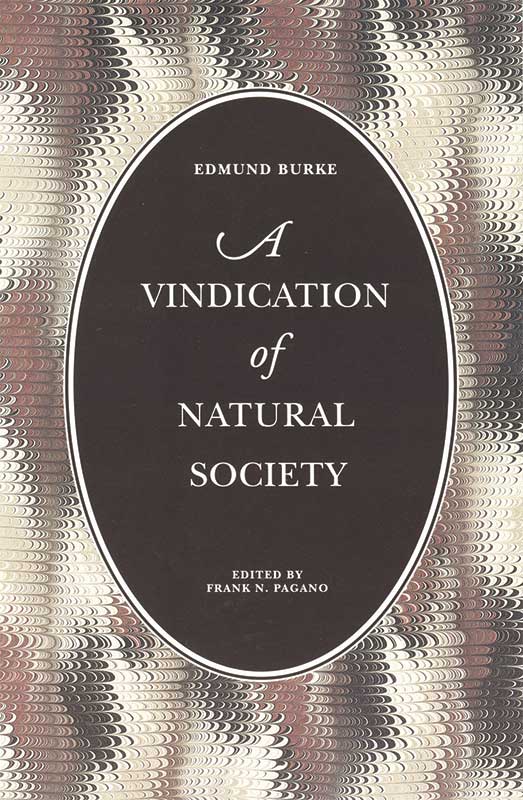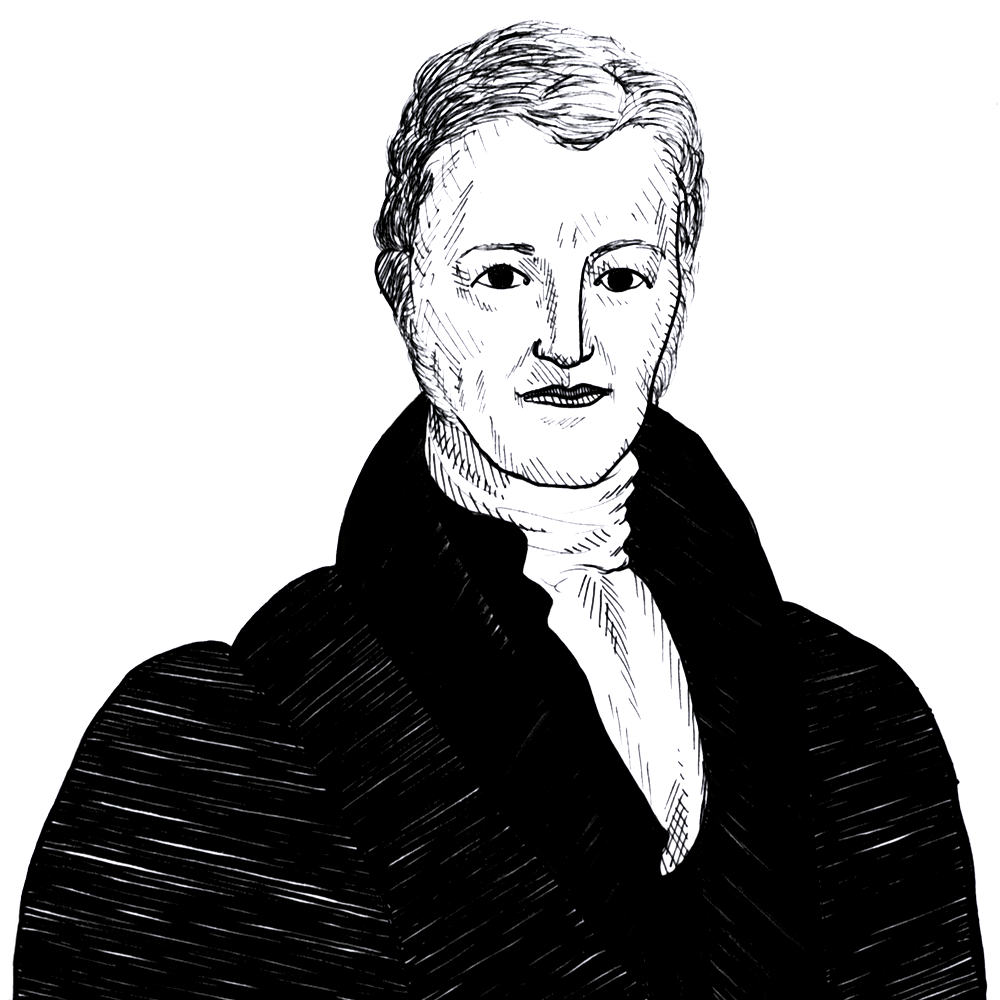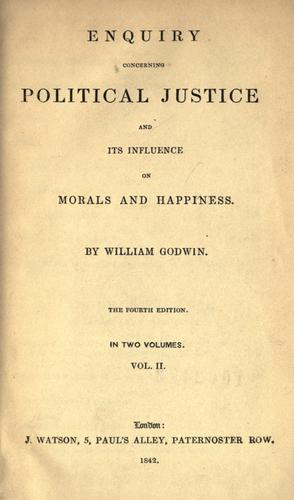
Part of: An Enquiry Concerning Political Justice, in 2 vols. An Enquiry Concerning Political Justice, Vol. II.
- William Godwin (author)
Godwin’s best known work of political theory. Written in the early years of the French Revolution before the Terror had begun, Godwin provides a devastating critique of unjust government institutions and optimistically proposes that individuals not the state can best provide for their needs. He believed that political change could best be brought about gradually and as a result of free discussion in small communities. This work has inspired many generations of radical thinkers.
Related People
Key Quotes
The State
Critical Responses
Thomas Robert Malthus
There are two versions of Thomas Robert Malthus’s Essay on the Principle of Population. The first, published anonymously in 1798, was so successful that Malthus soon elaborated on it under his real name. The rewrite, culminating in the sixth edition of 1826, was a scholarly expansion and…
William Wordsworth
The Borderers, Wordsworth’s only play, is a move away from Godwin’s philosophy and a dramatization of the disastrous results from trying to live according to Godwinian optimism.
Samuel Taylor Coleridge
Samuel Coleridge’s Bristol Lectures and The Watchman include attacks the principles Godwin lays out in Political Justice (that previously attracted Coleridge).
Connected Readings
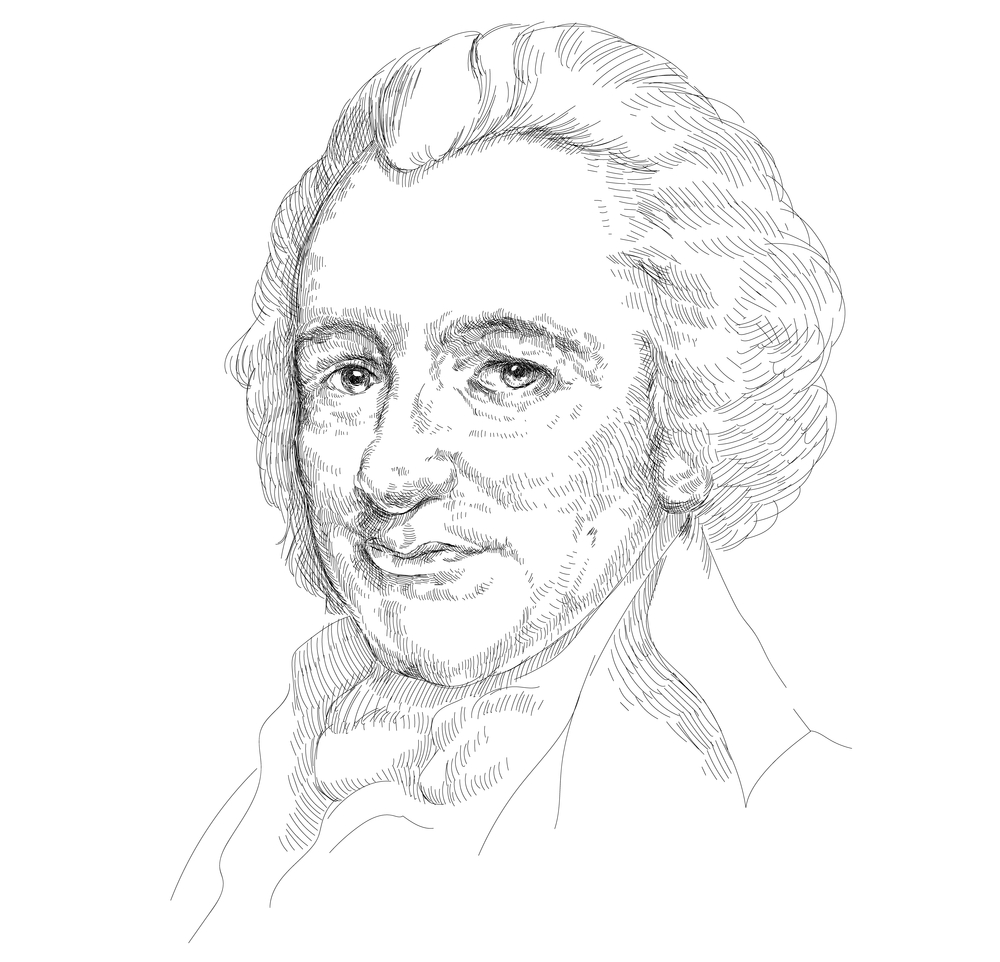
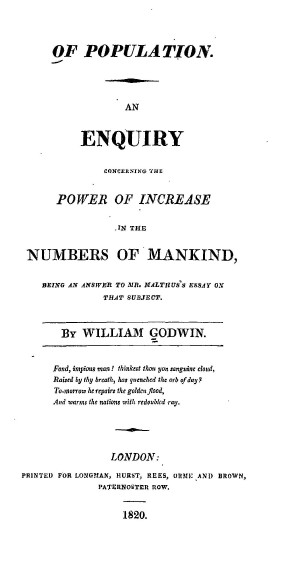
What to read next.
Of Population. An Enquiry concerning the Power of Increase in the Numbers of MankindWilliam Godwin
